So, what exactly is motivation? We often hear people talk about motivation, but have you ever thought about what it is and how it impacts your life and everything you do? In this article, we’re going to discuss motivation, why it is important, and how you can get the motivation you need to achieve success in life.
According to PositivePsychology.com,
- Motivation is the drive that influences actions & behaviors, rooted in intrinsic (internal) & extrinsic (external) factors.
To make things simple, Motivation is the invisible force that drives us to act, chase goals, and overcome challenges. But what exactly is motivation, why is it so important, and—most importantly—how do you get more of it when you need it most?
When you are motivated, you move and take action. As simple as that.
In this guide, we’ll break down what motivation really means, why it matters, the different types, the psychology behind it, and practical ways to boost it in your daily life.
What Is Motivation? (A Simple Definition)
Motivation is the internal or external drive that prompts you to take action toward a goal. It’s what makes you decide, “I’m going to do this,” and then follow through.
Psychologists often describe motivation as the process that initiates, guides, and sustains goal-directed behavior. That means it’s not just the spark to start something; it’s also the fuel to keep going and the determination to finish strong.
Example:
-
When you hit the gym because you want to feel strong and healthy, that’s motivation.
-
When you stay late at work to finish a big project because your promotion depends on it, that’s motivation, too.
Why Motivation Matters in Life – Why motivation Is Important?
Motivation is the driving force behind everything we do. It shapes our decisions, fuels our actions, and influences the outcomes we achieve in life. When you understand how motivation works—and what factors can boost or block it—you gain the power to take control of your habits, stay focused on your goals, and create the results you truly want.
Motivation isn’t just a nice-to-have—it’s essential. Here’s why it matters:
-
Achieves goals: Motivation is the engine behind every success story.
-
Improves productivity: It helps you focus and work efficiently.
-
Boosts happiness: Research shows motivated people report higher life satisfaction.
-
Supports mental health: Having a sense of purpose reduces stress and anxiety.
-
Drives resilience: Motivation helps you push through challenges instead of giving up.
Fun fact: Studies in positive psychology show that motivated people are not only more successful, but they also experience higher levels of well-being. Why? Because having meaningful goals and working toward them gives life a sense of purpose. Read this for complete understanding of why motivation is important?
Without motivation, you can’t really be successful. Successful people are successful because they know how to manage their motivations well.
It is true that we can’t rely solely on motivation, but motivation is the starting point of all success. This is why you need to learn how to master your motivation so that you will take action even when you don’t feel motivated to act.
Motivation isn’t just about feeling inspired. Psychologists break it down into three components:
-
Activation – The decision to start a behavior.
Example: Signing up for a gym membership or starting a side hustle. -
Persistence – Continuing the effort despite obstacles.
Example: Sticking with your workout plan even when you’re tired or busy. -
Intensity – How much energy you put into the behavior.
Example: Giving 100% effort during your workout versus just going through the motions.
Think of it like this:
-
Activation is striking the match.
-
Persistence is keeping the flame alive.
-
Intensity is how brightly that flame burns.
What Are The Types of Motivation
Not all motivation is created equal. Understanding the different types helps you use the right kind for your goals.
There are 2 main types of motivation, one is the intrinsic motivation where the drives come from within you. And another is the extrinsic motivation, where the drives come from the outside of you.
Read: What is Intrinsic and Extrinsic Motivation and How to Get More of Them
Intrinsic Motivation
Intrinsic motivation is the motivation that comes from deep within you. For instance, if you compete in sports to win because you want to prove to yourself that you can do it, it is a kind of intrinsic motivation. Or reading a book because you love learning.
Here are some additional resources to help you understand better about intrinsic motivation:
- 7 Most Common Examples of Intrinsic Motivation that Drive You
- 7 Great Ways How to Increase Your Intrinsic Motivation
Extrinsic Motivation
Extrinsic motivation is the drive that pulls you from the outside. Money, fame, power, luxury cars, and houses or avoiding punishment, are considered extrinsic motivation.
In my previous article, I shared a couple of external rewards that common drive people to act:
- We train and work hard to compete in sports for trophies and prizes.
- We buy things to satisfy our desire and need.
- Most sales jobs are extrinsically rewarded with commissions.
- When you buy something because of discounts or buy-one-get-one-free promotion.
- Working late to earn a bonus.
Both intrinsic and extrinsic motivation are important. The key is to learn how to make use of these two types of motivation to empower us and help us achieve our goals and the things that we want in life.
However, not written much but there is another type called Amotivation (absence of motivation)
Amotivation
The absence of motivation—you don’t feel like doing anything because the goal feels pointless or overwhelming. read this: Why Do You Have No Motivation? 10 Common Reasons and Solutions
Here’s a quick comparison table:
| Type | What It Means | Everyday Example |
|---|---|---|
| Intrinsic | Internal drive | Painting for joy |
| Extrinsic | External rewards/punishment | Working for a paycheck |
| Amotivation | Lack of drive | Skipping gym with no reason |
Pro Tip: The best goals often combine both—find meaning in what you do (intrinsic) while rewarding progress (extrinsic).
The Science Behind Motivation
Motivation has been studied for decades, and several psychological theories explain why we act the way we do:
-
Maslow’s Hierarchy of Needs: We’re motivated to fulfill basic needs first (food, safety) before higher-level ones like self-actualization.
-
Self-Determination Theory: People are most motivated when they feel autonomy, competence, and connection.
-
Drive Reduction Theory: We act to reduce internal tension (like eating when hungry).
-
Expectancy Theory: Motivation = belief that effort will lead to performance and rewards.
In short: We’re wired to move toward things that matter to us and away from discomfort. Understanding these theories helps you design a life that naturally motivates you.
What Causes a Lack of Motivation?
Ever had a day when you just… can’t? Here are common reasons why motivation disappears:
-
Lack of clarity: Vague goals kill drive.
-
Fear of failure: Worrying about mistakes makes you avoid action.
-
Burnout: Doing too much without rest drains energy.
-
All-or-nothing thinking: Expecting perfection leads to procrastination.
-
Mental health struggles: Anxiety and depression can affect motivation.
Quick Fix Tip: If you feel stuck, start small. Even five minutes of focused effort can restart momentum.
Motivation to You and Me
we’re going to discuss motivation in layman terms. Motivation plays a huge part in our daily life.
Basically, motivation describes why we do what we do.
For example, why are you reading this article right now? Here are a couple of reasons:
- You’re reading this for fun.
- You’re reading this because you need to do research on your school’s paper.
- You’re reading this article to hope that you can understand more about motivation.
- You want to learn how to get motivated.
No matter is the reason behind, there is a “why”. And motivation is the “why” behind human behaviors.
The Two Forces that Determine Your Motivation
Motivation isn’t random—it’s driven by two powerful forces that influence every decision you make. One pulls you toward pleasure, reward, or progress, while the other pushes you away from pain, discomfort, or failure.
Think of it like a personal tug-of-war inside your mind. The stronger force determines whether you take action or hold back.
For example, you know reading can help you grow and achieve your goals. At times, the pull toward that benefit—learning something new, improving yourself—feels strong, and you pick up the book. But there’s also a force urging you to do something easier or more entertaining: scrolling through YouTube, checking social media, or playing games. Which force wins depends on their strength in that moment.
This dynamic explains why some people take decisive action while others procrastinate. When the pull toward progress is stronger than the push away from effort, you act. When the fear, discomfort, or temptation to avoid work dominates, procrastination wins.
Understanding these forces helps you take control of your motivation instead of letting it control you. By identifying what drives you—pleasure or pain—you can design your environment and habits to favor action over inaction.
To explore your personal motivators in more depth, check out:
What Motivates You In Life? The 6 Common Factors That Drive People
How to Increase Motivation
Now that you understand what motivation is and why it is important, it is time to learn how you can motivate yourself.
Motivation isn’t magic—it’s a skill. Here are practical ways to boost it:
-
Set Clear Goals: Use the SMART framework (Specific, Measurable, Achievable, Relevant, Time-bound).
-
Break It Down: Big goals feel overwhelming; small steps make them doable.
-
Visualize Success: See yourself achieving the goal—your brain responds to imagery.
-
Reward Progress: Celebrate small wins to stay encouraged.
-
Build Accountability: Share your goal with someone or use an app to track progress.
-
Optimize Your Environment: Remove distractions and create cues for action.
-
Use the 2-Minute Rule: If a task takes less than 2 minutes, do it immediately.
-
Start with Why: Connect your goal to a deeper purpose (health, family, growth).
In Depth Actionable Tips & Steps For Improving Your Motivation
1. Set Your Goals with a Strong Purpose
Your “why” is the fuel behind every action. When your goal carries real emotional weight, it naturally drives motivation. Think about a time you felt unstoppable—chances are, it was because your goal mattered deeply.
Example: If you want to build a 7-figure business, ask yourself: why? Is it freedom, family security, personal growth? Your reason will determine how much effort you put in, especially when challenges arise.
Action Step:
Write down why your goals matter. Be honest and specific. Revisit this list whenever you feel unmotivated to remind yourself why the work is worth it.
Read: Why Clarity of Purpose is Important to Success and How to Get It
2. Break Goals Into Small, Easy Steps
The first step is often the hardest. Big goals feel overwhelming, but small, manageable actions reduce resistance and build momentum.
Example: Writing a long article? Commit to one paragraph at a time. Want to start exercising? Begin with 10–20 push-ups. Starting small creates momentum, which fuels motivation.
Action Step:
Identify the tiniest action you can take today. Once you start, momentum makes it easier to continue.
Read: Why Start Small? The 5 Important Benefits of Starting Small
3. Build Accountability
Shared goals are more likely to be achieved. Accountability keeps you on track and encourages consistent action.
Example: Research by Dr. Gail Matthews shows that people who report progress to someone else are significantly more likely to reach their goals.
Action Step:
Find a supportive accountability partner or group. Share your goals and weekly progress. Public commitment transforms intentions into action and reduces procrastination.
Check out my masterclass, Goal Setting Formula to learn how to set empowering goals and achieve them.
4. Reward Yourself for Taking Action
External rewards amplify motivation. Celebrating progress makes action enjoyable and reinforces positive behavior.
Example: After completing a task, give yourself 30 minutes to enjoy something you love—reading, gaming, or a walk outdoors. The anticipation of a reward makes it easier to start.
Action Step:
Choose rewards that excite you. Celebrate each achievement, no matter how small, to reinforce the habit of taking action.
Read: How to Reward Yourself for Your Hard Work and Effort
5. Visualize Success
Your thoughts shape behavior. Focusing on obstacles drains motivation, while vividly imagining success energizes it.
“Failure defeats losers. Failure inspires winners.”
Example: Think of the excitement before a vacation—you can’t sleep because the reward feels real. Apply the same principle to your goals: visualize achieving them and feel the pride and joy in advance.
Action Step:
Spend a few minutes daily imagining yourself achieving your goal. Feel the accomplishment and let that energy drive your actions.
Read: Success Mindset: 13 Thinking You Should Adopt to Succeed in Life
6. Focus on Positive Triggers
Motivation is reinforced by cues in your environment. Surround yourself with positive reminders of your goals, progress, and rewards.
Example: Keep a vision board, motivational quotes, or progress tracker where you’ll see them often. These triggers remind your brain why the effort matters.
Action Step:
Identify visual or environmental cues that inspire action. Place them where you can see them daily to keep your motivation alive.
7. Use the 2-Minute Rule
Starting is often harder than continuing. If a task takes less than two minutes, do it immediately. Action builds momentum, and momentum creates motivation.
Example: Instead of overthinking a workout, do just two push-ups or write one sentence. Often, once you start, you’ll keep going.
Action Step:
For every task you’re avoiding, find a tiny first step that takes less than two minutes and do it now.
8. Build Consistent Habits
Motivation is easier when supported by routine. Habits reduce reliance on willpower and make action automatic.
Example: Writing daily at the same time builds a writing habit. Exercising at a fixed time daily reduces the mental energy needed to start.
Action Step:
Pick one key habit aligned with your goal and commit to it consistently. Over time, your actions become automatic, and motivation becomes effortless.
FAQs About Motivation
Q: Is motivation permanent?
No. Motivation fluctuates. That’s why habits and discipline matter.
Q: What’s the difference between motivation and discipline?
Motivation gets you started. Discipline keeps you going when motivation fades.
Q: Can I become more motivated naturally?
Yes—by aligning your goals with your values and making progress rewarding.
Conclusion
Motivation isn’t about waiting for inspiration to strike—it’s about creating the conditions that make action easier. When you understand what drives you, remove barriers, and build small wins, motivation becomes less of a mystery and more of a system you can control.
So next time you feel stuck, remember: start small, stay consistent, and keep your “why” in front of you.
Check out these additional motivational resources & Quotes that can help you:
- 7 Motivational Habits That Drive Highly Successful People
- 15 Tips to Quickly Increase Your Motivation for Higher Performance
- Goldilocks Principle: How to Raise Your Motivation and Focus
- 10 Best Motivational Books to Kickstart and Drive Your Morning
- 101 Motivational Quotes for Students to Stay Focused & Achieve Success
- 101 Motivational Quotes for Women to Empower and Inspire
- 50+ Timeless Financial Quotes for Success That Will Inspire Wealth and Wisdom
- 10 Words That Can Really Motivate You
- 151 Motivational Quotes for Work to Help You Succeed


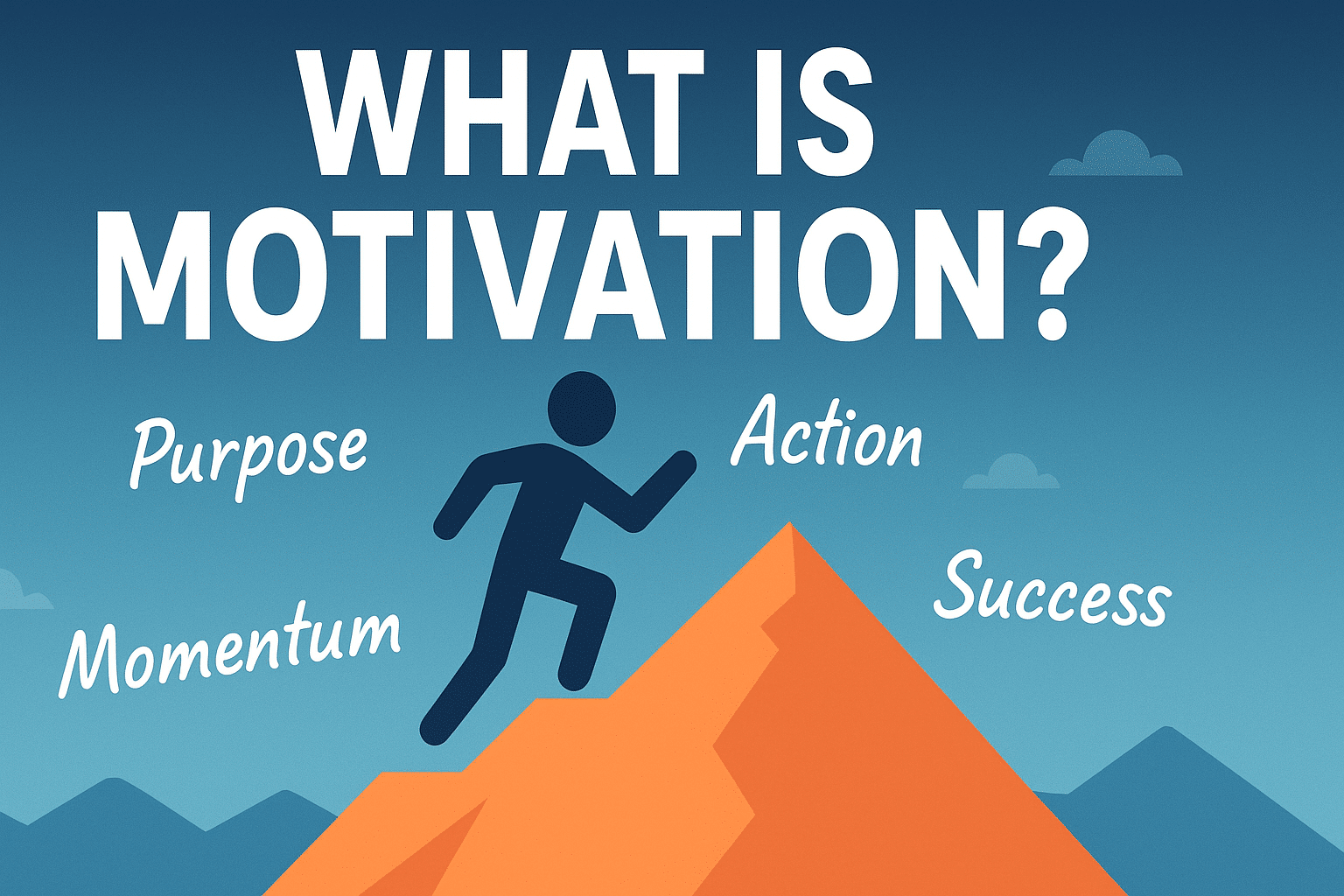



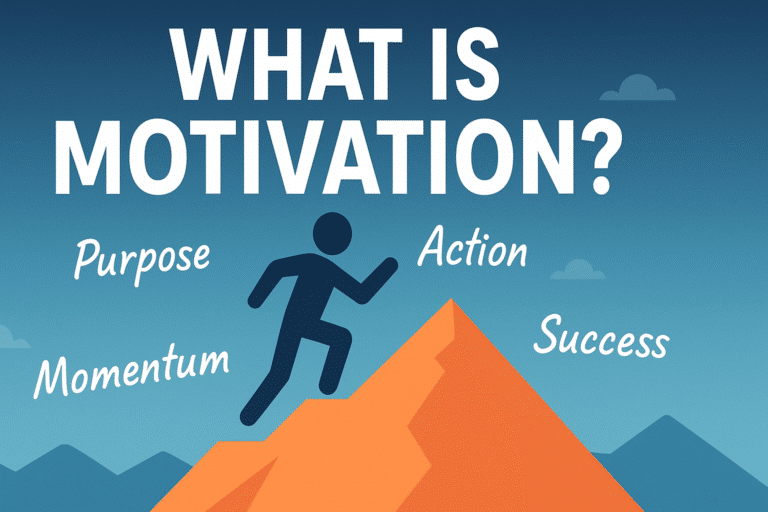


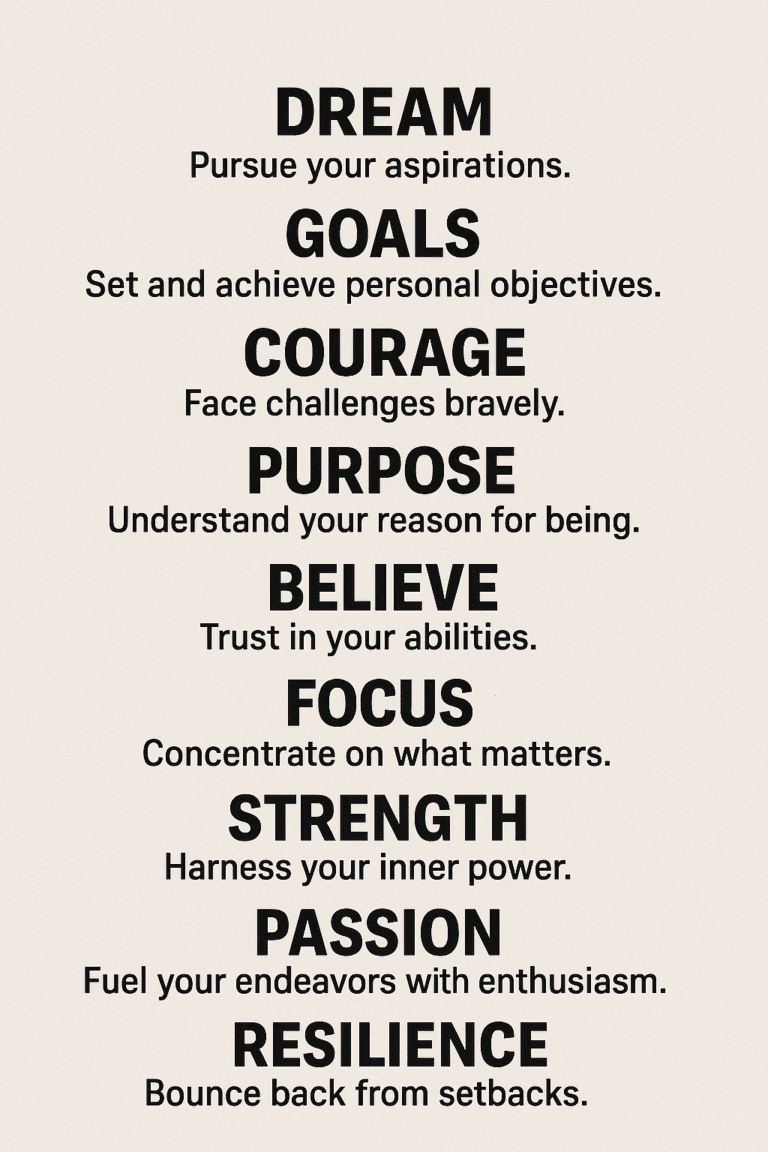


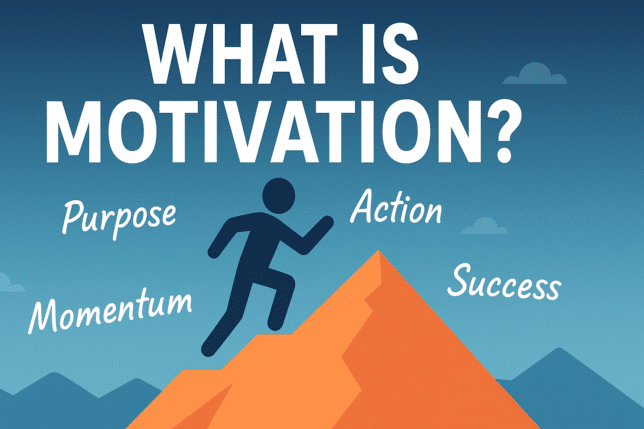


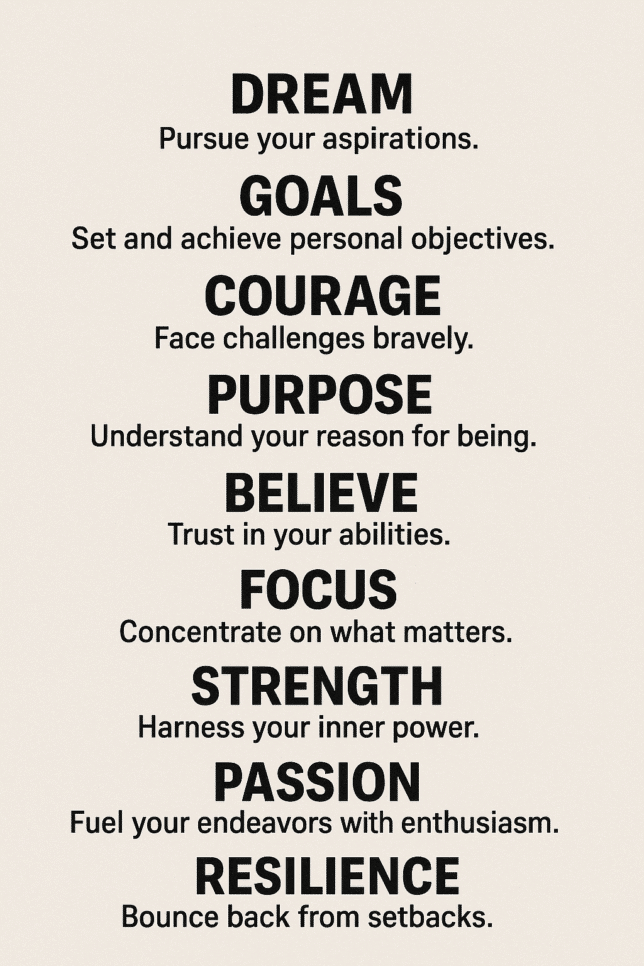


One Response